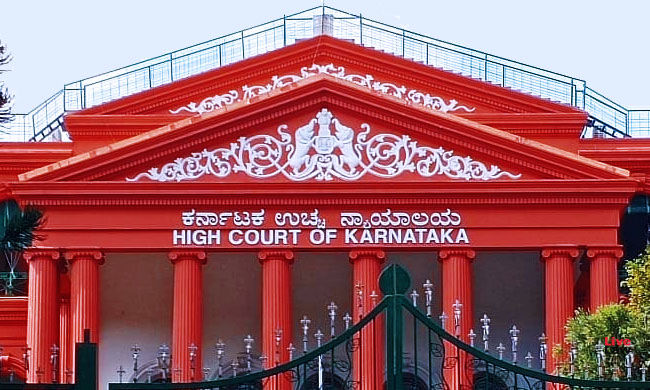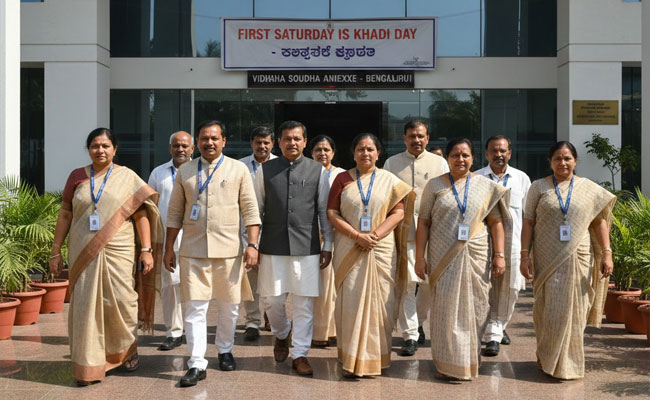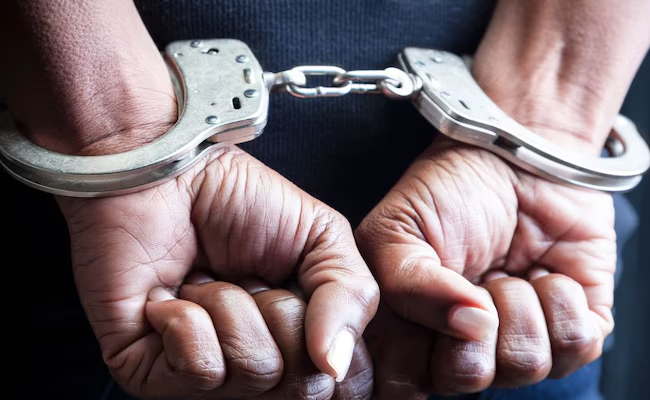Bengaluru: Karnataka High Court on Friday while hearing the Hijab issue reacted to an argument from Advocate Mohammed Tahir that the interim order passed by the Court was being misinterpreted and that even teachers were not being allowed to wear Hijab.
Advocate Mohammed Tahir said the interim order was passed considering the Law and Order situation and was limited to colleges where the College Development Committee has prescribed uniforms. He added that even the teachers were not spared and the Muslim community members were facing difficulty.
“Every department is interpreting the order differently. Yesterday Minority Department passed an order. Even in Urdu colleges, it is enforced. Policemen are deployed at gates and are threatening Muslim girls. The order said classroom. But at gates students are stopped,” Tahir said.
Reacting to this, the Chief Justice of Karnataka HC who is chairing the Bench hearing the case said “Our order was very clear.”
The CJ further asked the Attorney General for his views on the matter. The AG replied “I could say file an application. All I request is that give me the detail instead of the court. I assure that I will instruct that nobody will be permitted to act beyond the order of the Court.”
ALSO READ: Hijab not an essential religious practice of Islam: Karnataka govt to HC
Tahir then called for a report to be called from the state in the matter adding that even the ministers in the state are saying it is a high court order.
Replying to Tahir’s request for a report to be called from the state, CJ said “For what purpose. You file an application, we will consider it. AG is saying give your complaint in writing, he will instruct everyone to act in accordance with the order of the court.”
Let the Truth be known. If you read VB and like VB, please be a VB Supporter and Help us deliver the Truth to one and all.
Melbourne (PTI): Former Australian hockey player Michael Nobbs, who coached the Indian men's team at the 2012 London Olympics, has died after a prolonged illness.
He was 72 years old and is survived by his wife Lee Capes, a former Australian women's international and daughter Kaitlin, who is a current Hockeyroos star.
"Hockey Australia extends its deepest condolences to Michael’s family, friends, former teammates, players and all those whose lives and careers were shaped by his contribution to hockey. He will be remembered as a proud Kookaburra, a respected professional, and a servant of the sport," Hockey Australia said in a statement.
Nobbs represented Australia as a defender, playing across the half-back line and at fullback, and was renowned for his reliability, fitness and professionalism. He earned 76 international caps for Australia between 1979 and 1985, scoring one goal, and was a member of one of the strongest eras in Australian men’s hockey, said Hockey Australia on its website in its tribute.
Nobbs was an integral part of the Australian teams that competed at the 1981 Hockey World Cup in Bombay and the 1984 Los Angeles Olympics.
While part of a generation widely regarded as one of Australia’s finest, he consistently held his place through hard work, discipline and trust earned from teammates and coaches, Hockey Australia wrote.
Nobbs took over the coaching of the Indian men's team in 2011 after it had failed to qualify for the Beijing Games in 2008. While India were brilliant in the qualifiers, the team finished last at the London extravaganza which also expedited the Australian coach's sacking.
Apart from India, Nobbs also coached Japan.





